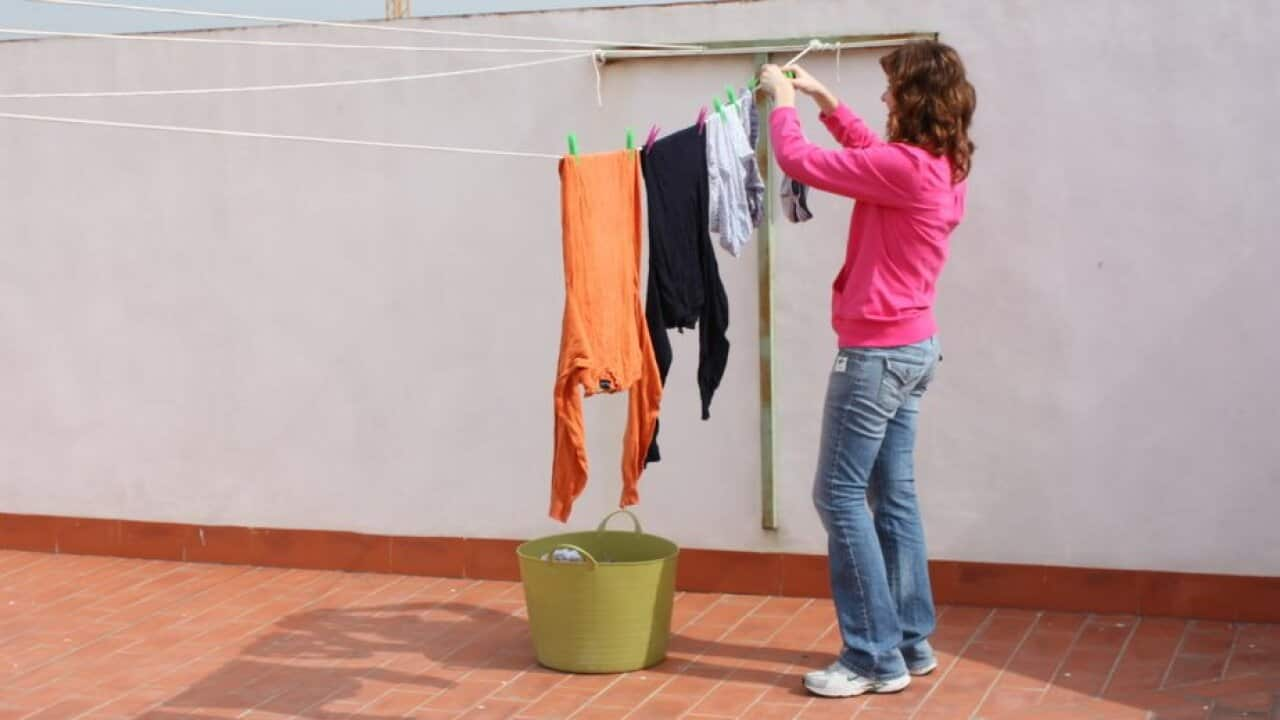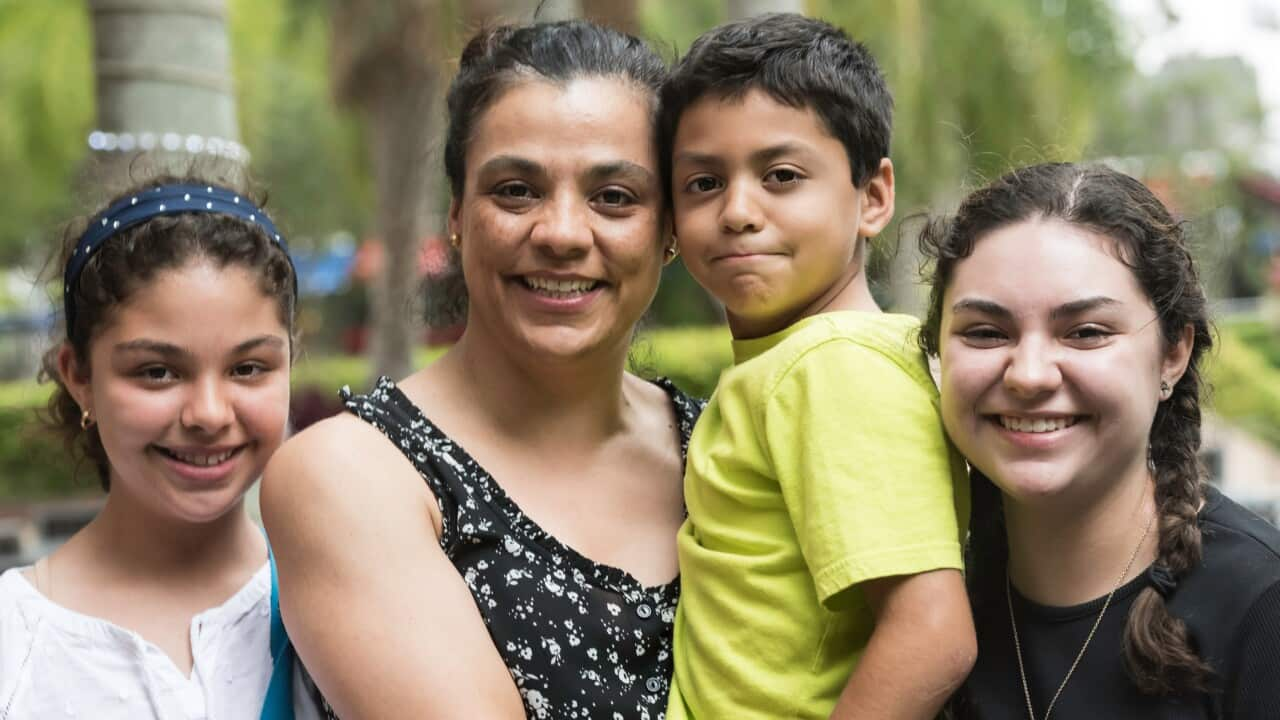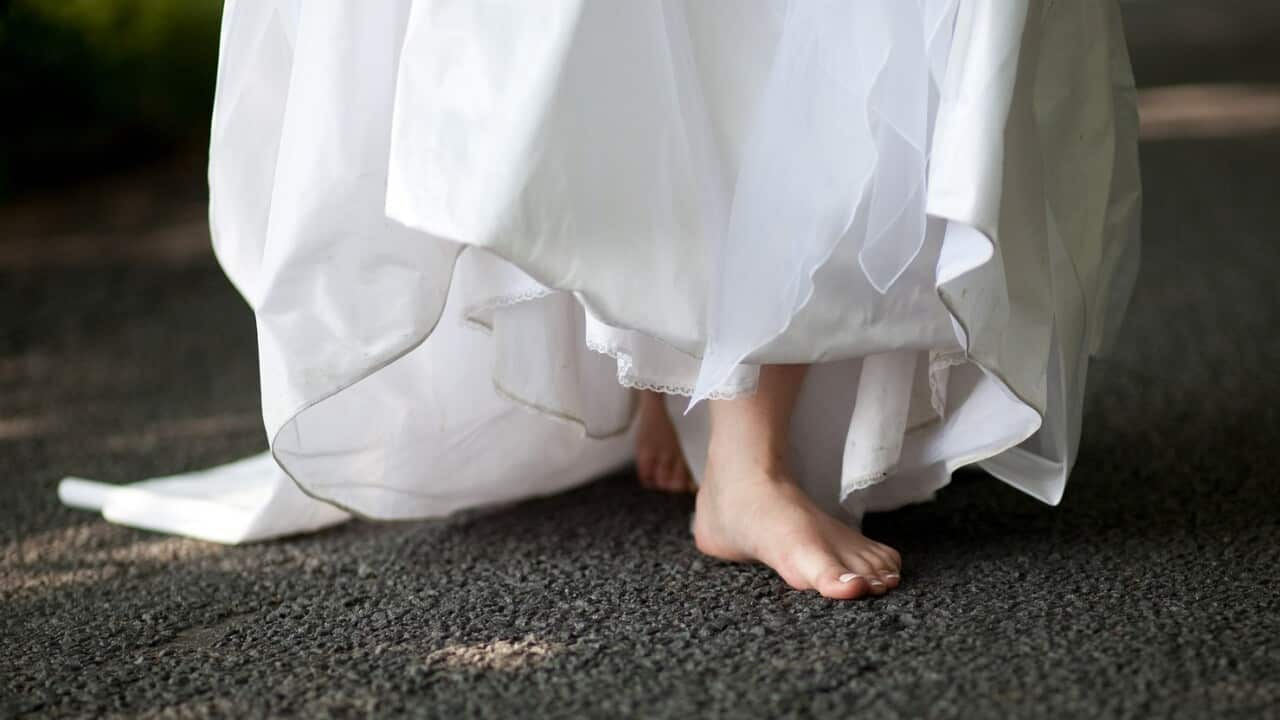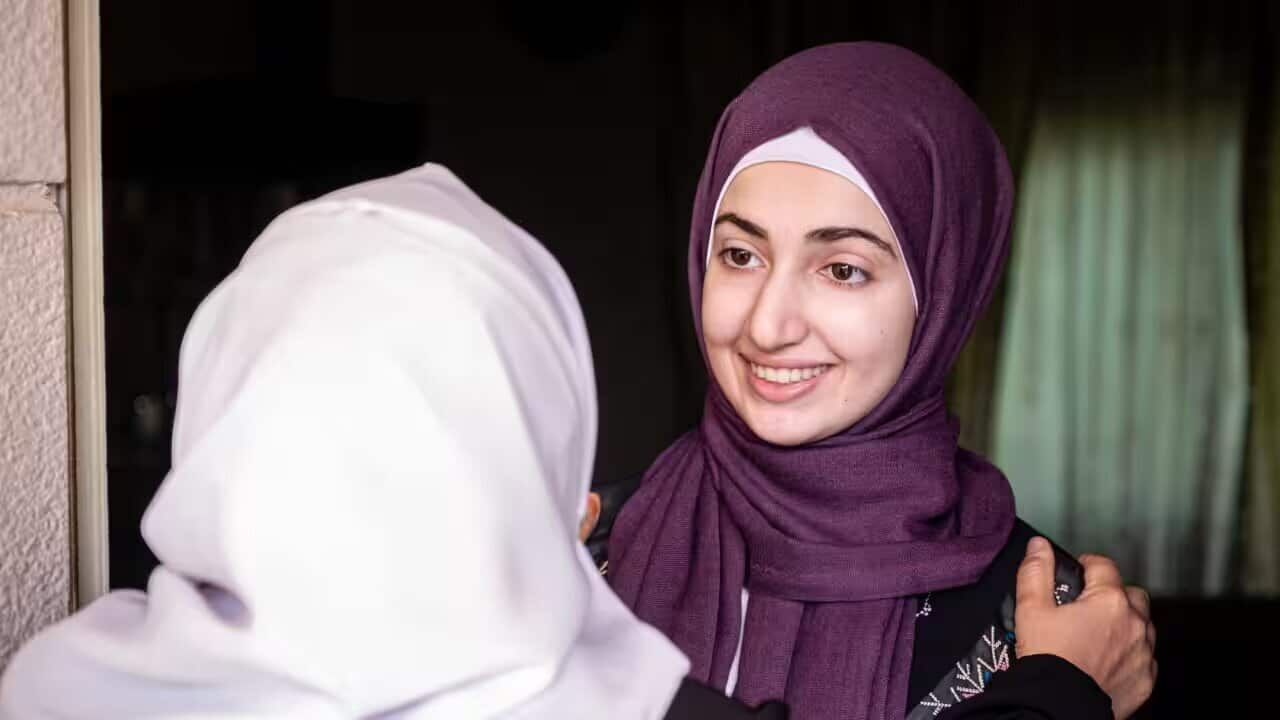Souad Saad deeply regrets not completing her studies but not a lifetime spent looking after her family members.
The 73-year-old Syrian woman left school early to help her parents care for her siblings.
I helped my family, then my husband's family, in raising my brothers, then my husband's brothers. After that I found myself in Australia, caring for my husband who is suffering from Alzheimer's.Souad Saad

Souad Saad Credit: Supplied
In this podcast, SBS Arabic24 spoke with four self-described "housewives" of different backgrounds and ages to go beyond the stereotypes of this work.
While some women were reluctant to talk about this topic, others spoke confidently about undertaking this role.
Some women said they chose to stay at home for the sake of their husbands and children, but others said circumstances forced them to do so.
‘My role model’
Sarah Bouhabba, a 30-year-old originally from Morocco, is a graduate of the University of Paris and the wife of a professor. She’s also a stay-at-home mother.
My mother remains my role model. She is the one who responded to my father's request and gave up her job to take care of me and my siblings, and I proudly follow her example.Sarah Bouhabba
Sarah said there are often misconceptions that housewives are unambitious or unproductive, but explained that her “first and last priority” is the comfort and safety of her family.
For this reason, she feels “proud” to provide the platform for her husband to achieve breakthroughs in the field of medicine.
Thirty-nine-year-old Natalie (full name withheld) arrived in Australia from Lebanon at an early age.
While attending school here, she observed her mother and aunts taking care of the cleanliness of the house and the safety of their children.
This, too, became her primary focus.
For me, there is nothing better than being at home, looking after my kids and cooking healthy foodNatalie
Challenges of migration
Albera Saad, 54, regrets leaving school early to care for her siblings.
She explained that she was forced to stay at home due to compelling circumstances.
While she worked for a few years in her home country, Syria, the language obstacle proved too much for her to join the workforce in Australia.
Today, in addition to taking care of her family, she now works hard to learn English.

Albera Saad Credit: Supplied
Changing times
Emil Gharib, a family relations expert who works closely with migrant communities, said current research shows that a mother’s presence in the house instills “comfort, tranquility and balance” in other family members.
Emil argues that being a housewife is “the most difficult profession”, because the woman works continuously and for free, taking care of every detail.
He contends that gender roles were largely the same in the East and West until the 1960s and 1970s when the women’s rights movement gathered momentum in the West.
“Women primarily took on parenting and housewife roles, while men were seen as breadwinners,” he said.
“Now the view has changed. In the new family structure, both are partners and share the load with parenting. Women are encouraged to actualise their dreams with the help of their partner.
Together they work hard to meet their family’s emotional and physical needs, and bring up great kids.Emil Gharib, family relations expert

Sara Bouhabba's kids Credit: Supplied





